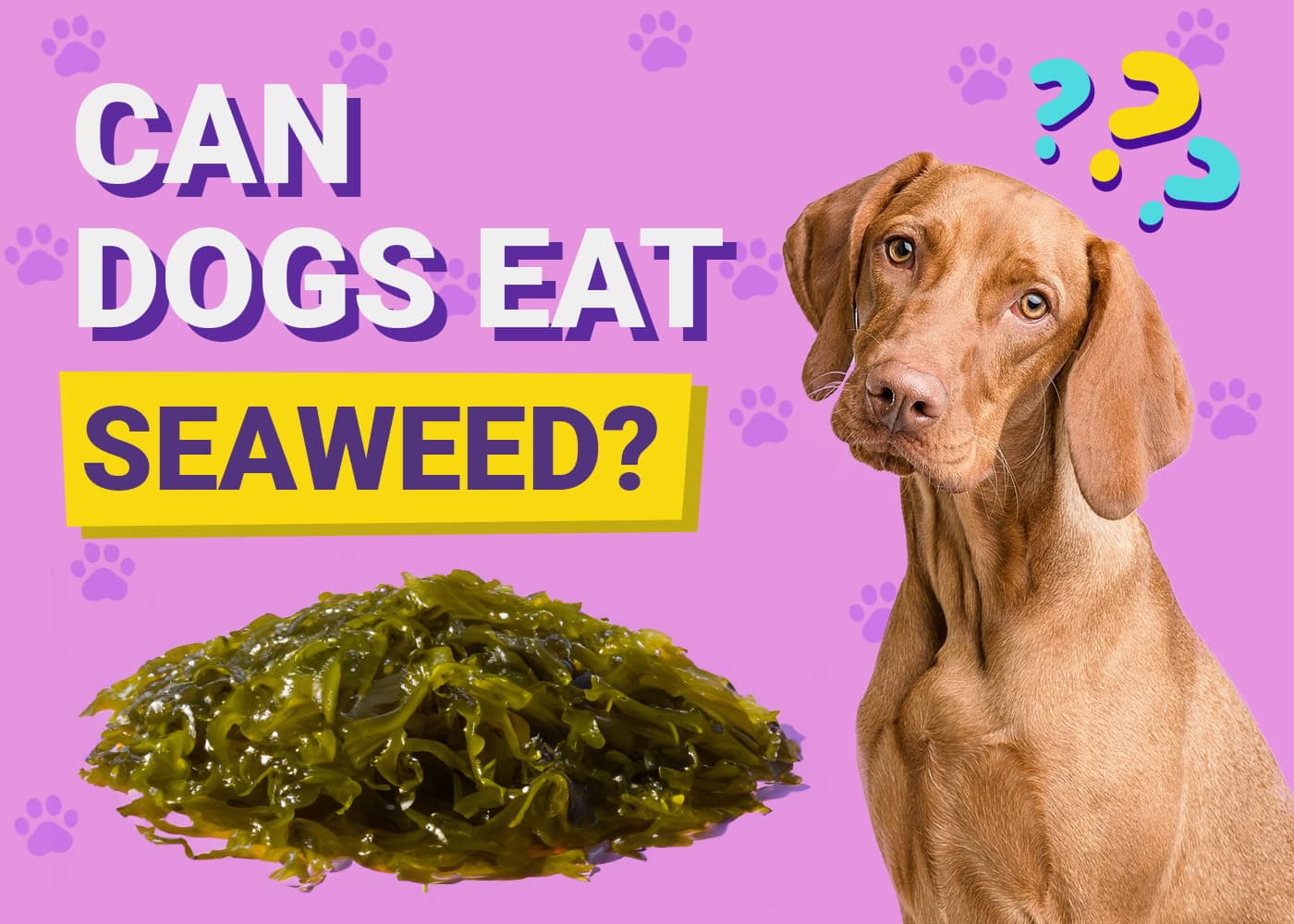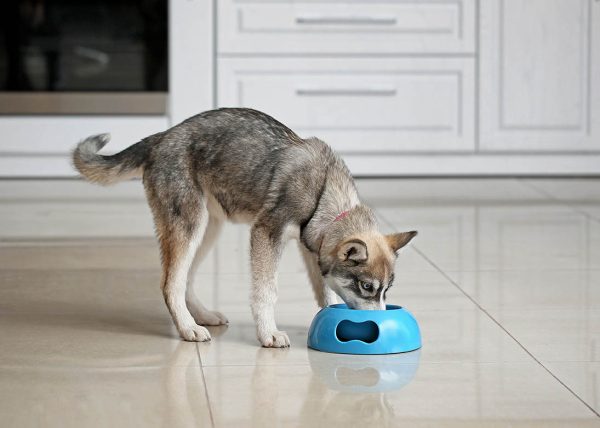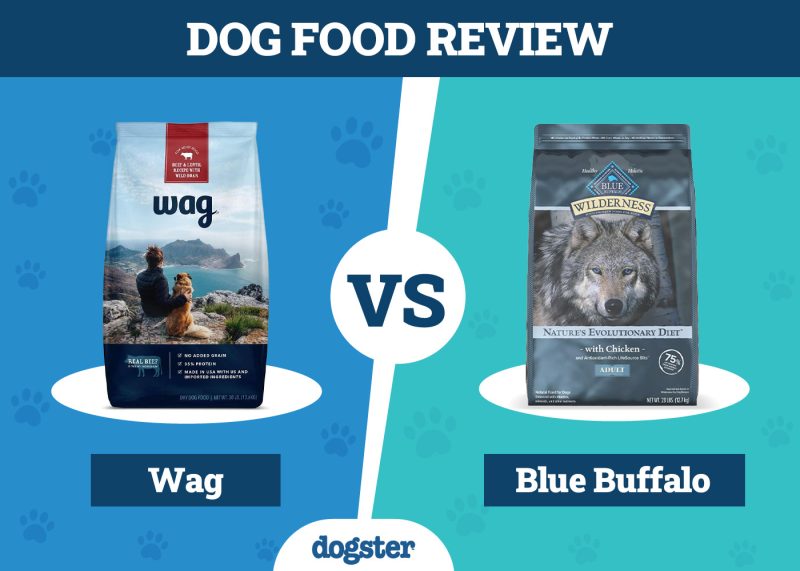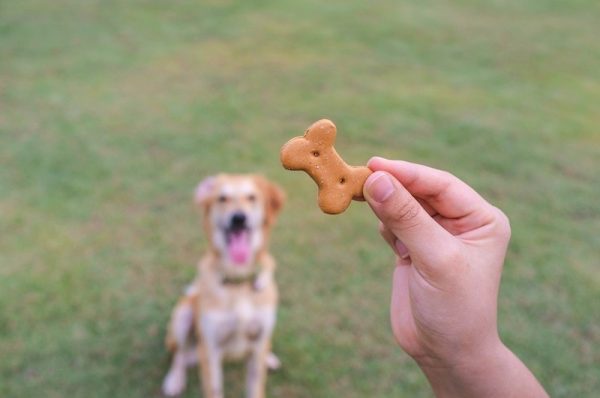In this article
View 3 More +Sharing some types of seaweed with your furry friend is okay in moderation. Seaweed is an excellent source of iodine, antioxidants, and vitamins, and it also provides a satisfying crunch and delicious natural flavor. However, it’s crucial to ensure that the processed seaweed sheets you offer your pup don’t contain any added salt or garlic.
By following these guidelines, you can ensure your pup’s safety and enjoyment of this oceanic delicacy.

Can Dogs Eat Seaweed?

Before sharing seaweed with your dog, it’s essential to check the ingredients list to ensure it doesn’t contain any additional seasonings that could be harmful to them. You can safely share certain types of seaweed, including prepackaged seaweed sheets, with your furry friend in moderation.
Seaweed can be a highly nutritious snack for dogs. It contains protein, iodine, iron, magnesium, and omega-3 fatty acids. Iron is beneficial for your pet’s red blood cell health. At the same time, the omega-3s in seaweed can aid in brain development, boost the immune system, and even relieve arthritis symptoms by reducing inflammation, at least in humans. So, it’s likely to have some health benefits for dogs as well.
It’s great to know that seaweed has many health benefits, which is why it’s often included in supplements. But you must ensure it doesn’t include any extra onions, garlic, or other similar toxic ingredients for dogs. If you’re thinking of adding something to their diet, it’s always a good idea to check with your veterinarian first. They can advise you on what’s safe and healthy for your canine.
If you need to speak with a vet but can't get to one, head over to PangoVet. It's our online service where you can talk to a vet online and get the advice you need for your pet — all at an affordable price!
The 6 Types of Edible Seaweed
Seaweed is typically flexible when in water but is often dried for preservation. Several kinds of seaweed are both edible for humans and safe for dogs. Here are some of the most commonly enjoyed types:
- Nori: This is a type of seaweed with the unique characteristic of changing color from purplish-red to dark green when dried. This seaweed is highly favored in Japanese cuisine, especially in wrapping sushi or rice balls known as onigiri. Interestingly, some dogs also enjoy the taste of Nori as a treat. However, choosing plain varieties that are unseasoned is vital.
- Dulse: This is a fascinating type of seaweed with a reddish hue found in the colder waters of the northern Atlantic and Pacific oceans. It naturally attaches itself to rocks and has been harvested for thousands of years in Scotland and Iceland. Dulse has a unique texture that is soft and leathery, making it stand out among other types of seaweed. It is available in several forms, including shredded, dry flakes, or ground into a powder, making it a versatile ingredient for various dishes.
- Kombo: A type of kelp highly regarded for its use in dashi—a famous savory broth in Japan—this is a long strip of flavorful seaweed prized for its rich umami taste. Although Hokkaido, Japan’s largest island, is a major producer of kombu, it can also be found in abundance along the California coast. If you want to make dashi, all you need to do is combine kombu with katsuobushi or iriko, and you’ll have a delicious broth that you can use to add moisture to your dog’s kibble.
- Hijiki: A brown seaweed that turns black when dried, takes the shape of thin twigs when dried, and grows on rocky shorelines in Japan, China, and Korea. While it is commonly used in preparing seaweed salads, it is also a nutritious option for your furry friend. To feed your dog hijiki, rehydrate the dried seaweed and add a small amount to their meal. This will give them a healthy dose of vitamins, minerals, and other essential nutrients.
- Irish moss: Irish moss is a type of algae that grows along the Atlantic coasts of Europe and North America. It’s unique looking, too, almost like little trees with branches coming out of the stem. You can get it in either powder or gel form.
- Wakame: The underwater ecosystem of kelp forests is a vital habitat for various species of marine life. One of the notable edible seaweeds that grow in these forests is wakame, a dark green seaweed also called sea mustard. Wakame is a popular ingredient in miso soup due to its sweet taste and silky texture. Aside from its culinary uses, this seaweed is also a rich source of omega-3 fatty acids essential for maintaining good health.
How to Feed Seaweed to Your Dog
If you want to enjoy sharing your seaweed snack with your dog, keep it plain, unseasoned, and in small quantities. It’s best to avoid giving them seaweed sushi made with raw fish, as it can upset their stomach, as well as too much seaweed.
If you want to let your dog eat seaweed safely, here are some essential tips to keep in mind:
- First, start slow. Your dog may have a sensitivity to seaweed, so it’s best to give a minimal amount first to ensure they don’t have an adverse reaction.
- It would be best to feed your canine seaweed that you would be willing to eat yourself. Not all types of seaweed are safe for them, but those commonly found in grocery stores are typically fine.
- It’s also important to be cautious of any seasoning on the seaweed. While all seaweed is naturally salty, some varieties may have more salt or other seasonings that aren’t good for your dog.
- Raw seaweed. It’s crucial to watch out for any seaweed your furry friends might encounter in lakes or oceans. As much as they might want to check it out, it could be dangerous for them. From bacteria to unsafe algae, there are a lot of things that could harm your pup. And to make matters worse, blue-green algae can be fatal for dogs. So, let’s guarantee we keep our pups safe and avoid questionable seaweed you see in the wild.
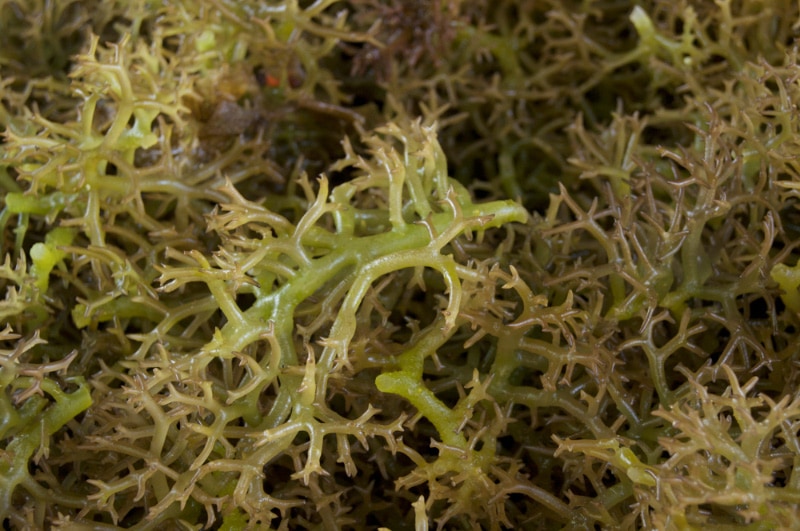
Can Dogs Have Seaweed Supplements?
To take advantage of the nutritional benefits of seaweed for your dog, try and select supplements specially formulated for dogs. You also need to know that supplements designed for human use may contain harmful ingredients, such as xylitol, which can be dangerous for canines. Therefore, you should always carefully read the label and seek advice from your veterinarian if you have any concerns.

Summing Up
It’s always good to try new things to benefit our furry friends. Seaweed is a good nutrient source that can be healthy for humans and dogs. However, ensure you get it from a reliable source and give it to them in small, dried amounts. Don’t forget to consult with your vet before adding any new food to the diet to be sure it’s safe for them.
Remember to keep an eye on your furry friend’s energy levels, stool, and overall behavior once you introduce seaweed to their diet. This will let you know they don’t experience any adverse or allergic reactions to it. The health and safety of your beloved pet should always be a top priority.
See also:
- Can Dogs Eat Clam Chowder? Vet Reviewed Nutrition Facts & FAQs
- Can Dogs Eat Dried Mangoes? Vet Approved Nutritional Info & Risks
Featured Image Credit By: Foodio, Shutterstock
